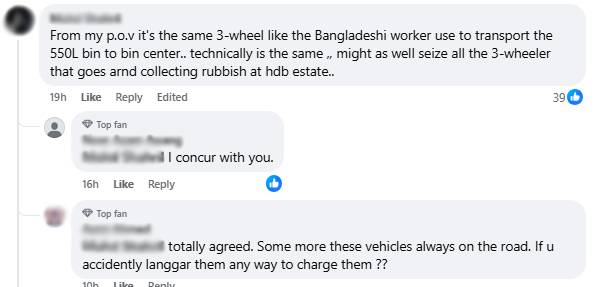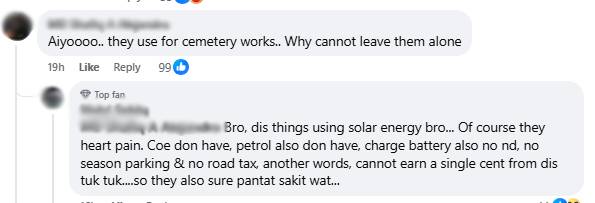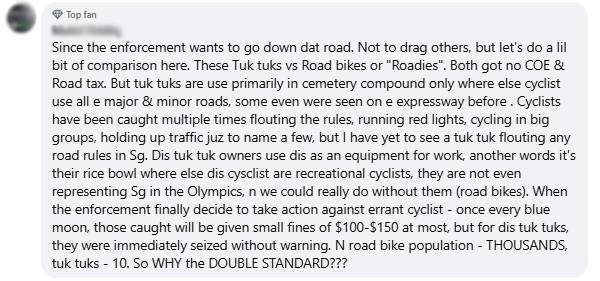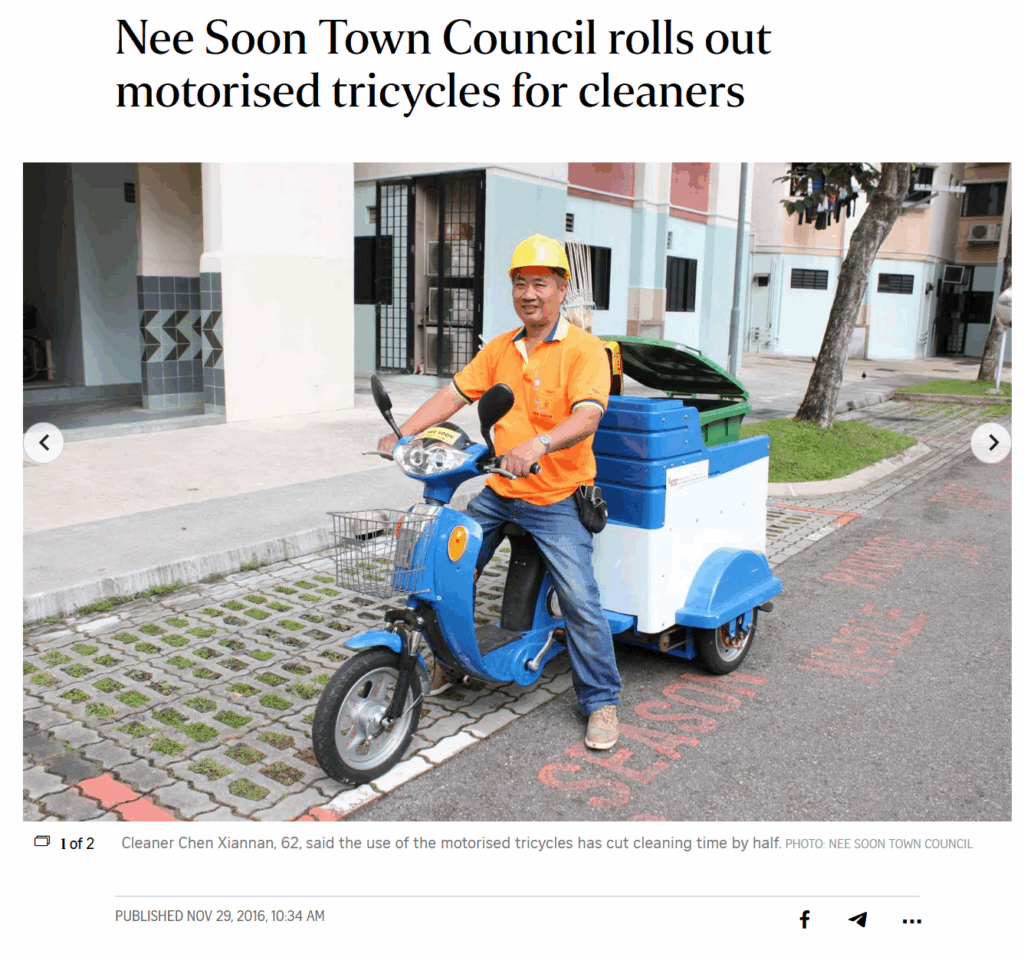SINGAPORE: Several auto-rickshaws, commonly known as “tuk-tuks,” have been seized by the Land Transport Authority (LTA) for investigation after being found parked at lots and along the roadside near Lim Chu Kang Muslim Cemetery.
The seizure followed reports lodged about the unregistered vehicles.
According to Shin Min Daily News, the tuk-tuks were seen without number plates and are believed to be unregistered.
Concerned passers-by expressed fears that these vehicles could pose a safety risk if driven recklessly.
When Shin Min reporters visited the cemetery on 13 May, they observed four to five of these vehicles in the area.
Nearby workers revealed that the tuk-tuks belonged to those employed at the cemetery, primarily tombstone makers and groundskeepers.
A 66-year-old worker said such vehicles have been in use since 2020, explaining that trucks are often too costly for many workers, who instead use tuk-tuks to transport materials around the cemetery.
The vehicles are generally confined to the small internal roads within the cemetery grounds.
Another tuk-tuk owner, a 60-year-old man who grew up in the area and followed in his family’s footsteps working at the cemetery, said he used the vehicle to carry heavy tools due to a leg injury.
He claimed to have never received any complaints and used the tuk-tuk only within the cemetery grounds.
One tuk-tuk owner shared that he spent S$3,800 to purchase his vehicle from China.
The solar-powered vehicle is equipped with a backup battery that allows it to operate for three to four days without sunlight.
He estimated there were around 10 such vehicles in the area, all believed to have been imported from China.
In response to media queries, LTA confirmed that it had taken enforcement action and seized several unapproved vehicles found near the Lim Chu Kang Muslim Cemetery.
An LTA spokesperson stated, “All motor vehicles must meet vehicle approval and registration requirements before they can be used on roads.”
The authority also reiterated that all vehicles intended for use on public roads must comply with safety and regulatory standards.
While LTA has not confirmed whether further action will be taken against the users or importers of the tuk-tuks, investigations are ongoing.
According to the Road Traffic Act, no person may keep or use a vehicle unless it has been registered under the Act and the registration has not been cancelled.
Anyone found guilty of contravening this requirement may be liable on conviction to a fine not exceeding $2,000, or imprisonment of up to three months, or both.
In the case of a second or subsequent conviction, the penalties may increase to a fine of up to $5,000, imprisonment for up to six months, or both.
Netizens Question Enforcement
The news prompted a wave of public comments on a Mothership Facebook post, with many questioning the LTA’s actions.
Some users drew comparisons with electric buggies commonly used by town council workers to collect rubbish, as well as by staff at golf courses and resorts.
One user questioned whether the electric buggies used by town council workers to collect rubbish from older HDB blocks were also illegal, pointing out that they don’t have registration plates.
Others echoed this sentiment, suggesting that the authorities might as well seize all three-wheelers used for rubbish collection in HDB estates.


Others commented that if golfers are allowed to use buggies, cemetery workers should be allowed to use auto-rickshaws as well, noting there’s nothing wrong with their use since they are not on public roads.


One user remarked, “Might as well seize all the electric buggies driving around resorts and Changi Airport too. And those forklifts operating inside industrial buildings—also can seize, right?”

Some netizens felt the enforcement was excessive, especially since the tuk-tuks were used only within the cemetery grounds and not on public roads.
“They use it for cemetery work. Why can’t they be left alone?” one person wrote.

Another added, “It’s been there for a long time, used only within the cemetery premises for workers to load their stuff and move around the area.”

Others defended the workers, highlighting their limited mobility and the practical need for such vehicles.
“The workers don’t speed and really only drive around the cemetery area. I think they’re much safer than the other vehicles around there!” one user commented.

Another suggested that if the LTA intends to restrict such vehicles, it should first provide alternative transport options for workers who depend on them for their livelihoods.

Complaints of Double Standards
A number of netizens also accused the LTA of double standards, noting that personal mobility devices (PMDs) and personal mobility aids (PMAs), which are often seen on public paths and roads, pose greater safety risks yet remain unseized.




One user compared tuk-tuks to road bikes, noting both lack COE and road tax.
Some commenters pointed out that cyclists use public roads and often break traffic rules but face only small fines. In contrast, tuk-tuks used solely within the cemetery were seized without warning. They argued that while most cyclists ride for recreation, the tuk-tuk owners rely on their vehicles for work.

Although some members of the public have pointed out what they perceive as a double standard in enforcement, it should be noted that the LTA has previously impounded both PMAs and PMDs for breaching regulations.
For example, in 2024, LTA took enforcement action against 10 PMA users who were found riding on public roads, impounding four of the devices.
Under current regulations, PMDs must not exceed a weight of 20kg, a width of 70cm, and a top motorised speed of 25km/h. Offenders found using non-compliant or unapproved devices may face fines of up to S$10,000, imprisonment for up to six months, or both.
Nonetheless, as some commenters pointed out, electric carts and buggies used by town councils and other public institutions often operate without registration plates, presumably under some form of institutional approval.
Given that the cemetery tuk-tuks were used solely off public roads for work-related purposes, many argue that similar discretion or approval could have been extended to these workers—particularly when their livelihoods depend on it.

The post Public questions LTA’s enforcement after tuk-tuks seized at Lim Chu Kang cemetery appeared first on The Online Citizen.


